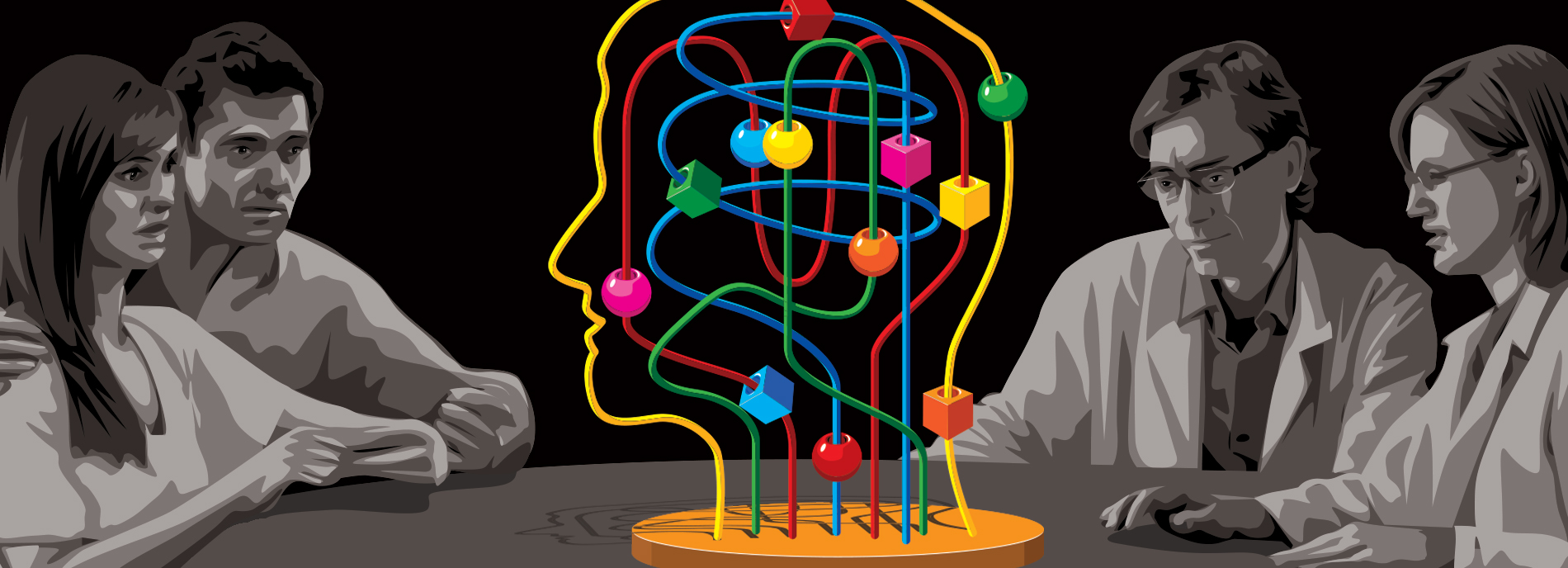Family ties
Recent articles
How ordinary people influence autism research
The builders: How parents shaped autism research
A group of savvy parents jump-started autism research in California, but they also set the research agenda.

The builders: How parents shaped autism research
A group of savvy parents jump-started autism research in California, but they also set the research agenda.
The innovators: How families launch their own autism studies
Some parents are starting ‘N-of-1’ studies for autism, but their efforts don’t always get taken seriously.

The innovators: How families launch their own autism studies
Some parents are starting ‘N-of-1’ studies for autism, but their efforts don’t always get taken seriously.
The seekers: Why parents try fringe therapies for autism
Many parents resort to unproven — even dangerous — alternative treatments for their children’s autism. What drives them?

The seekers: Why parents try fringe therapies for autism
Many parents resort to unproven — even dangerous — alternative treatments for their children’s autism. What drives them?
The pioneers: How parents are experimenting with marijuana for autism
Meet the backyard marijuana growers and home chemists who are rushing in where scientists fear to tread.

The pioneers: How parents are experimenting with marijuana for autism
Meet the backyard marijuana growers and home chemists who are rushing in where scientists fear to tread.
Explore more from The Transmitter
Lack of reviewers threatens robustness of neuroscience literature
Simple math suggests that small groups of scientists can significantly bias peer review.

Lack of reviewers threatens robustness of neuroscience literature
Simple math suggests that small groups of scientists can significantly bias peer review.
Dendrites help neuroscientists see the forest for the trees
Dendritic arbors provide just the right scale to study how individual neurons reciprocally interact with their broader circuitry—and are our best bet to bridge cellular and systems neuroscience.

Dendrites help neuroscientists see the forest for the trees
Dendritic arbors provide just the right scale to study how individual neurons reciprocally interact with their broader circuitry—and are our best bet to bridge cellular and systems neuroscience.
Two primate centers drop ‘primate’ from their name
The Washington and Tulane National Biomedical Research Centers—formerly called National Primate Research Centers—say they made the change to better reflect the breadth of research performed at the centers.

Two primate centers drop ‘primate’ from their name
The Washington and Tulane National Biomedical Research Centers—formerly called National Primate Research Centers—say they made the change to better reflect the breadth of research performed at the centers.
